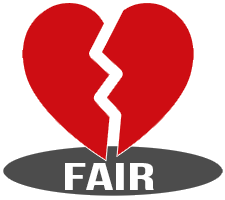FAIR has pioneered the concept of Counter-Narratives to Counter Terrorism. This means giving victims a voice and letting them challenge to propaganda and false narratives which are used to radicalise young people and recruit them to support terrorism. By supporting victims to tell their stories we can break the cycle of violence and support for terrorist groups. Terrorism uses a narrative which dehumanises their victims, portraying them as a uniform, or a representative of a state when in reality they are human beings with lives and rights and dreams which are often cruelly ended in the pursuit of a terrorist agenda.
Victims who know the true cost of conflict want to prevent it, and see their stories as the key to countering the false narratives of terrorism. Our truth will set us free from the chains of terrorism and unlock a peaceful future for all. FAIR has always provided a platform for victims to tell their stories, to show the real human face of conflict and the true cost of terrorism. We have worked with victims groups across the globe who share this vision and many important projects have been developed and have built real peace in our time.
The C4C Project, the terrorism survivors’ storytelling, is a global platform for resilience stories and radicalisation awareness. It is a cross national project, supported by the European Commission – DG Home Affairs (ISEC program), started at the beginning of 2013, involving several private, no-profit and public partners, but open to the collaboration of other interested subjects.
The project aim – through ‘The terrorism survivors storytelling’ web platform – is to spread the stories of the victims to the general public and to specific target groups, by collecting, categorizing and giving e-collaborative tools and additional resources for the practical use of these narratives – for example, in educational programs for students and young adults, to empower people with a critical thinking toward hate narratives, or to prevent people from becoming attracted by or permissive towards violent movements, or to de-radicalize people engaged into a radicalisation pathway.
The project is proceeding along three main procedures:
1) The selection, cataloguing, digitization of the materials that contain survivors stories and testimonies, retrieved through the Italian and French associations of victims of terrorism with the availability of other European associations;
2) The design and development of a multilingual platform (The Terrorism Survivors Storytelling) that contains the archive (Global data-base) of the selected materials files. Some of these will be made directly available in their various forms of text, video, photos (Multimedia deposit). That digital material will be used for digital storytelling activity to create new communication/didactic products through the e-collaborative tools, currently on the platform. Furthermore the platform will offer some selected didactic and methodological resources to help its practical usage at the ground floor carried on by practitioners, teachers, tutors for educational/prevention/de-radicalization programs.
3) The enhancement of the strategic value of the C4C project and dissemination of its achieved results during the first two years of its life. A specific target will be a group of students in Italy and France who are going to test the platform and its e-collaborative tools.
